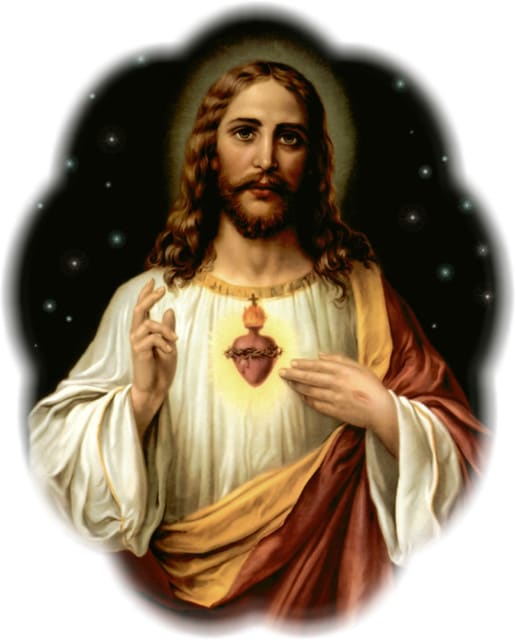アヴェ・マリア・インマクラータ!
愛する兄弟姉妹の皆様、
セデヴァカンティズム(教皇聖座空位論)と言われている主張があります。
この教皇聖座空位論によると、その結論は、今現在、あるいは、第二バチカン公会議以後、バチカンで教皇として世界中で認識されている人(つまり、パウロ六世や、ヨハネ・パウロ二世や、ベネディクト十六世、あるいは、教皇フランシスコ)などについて、「教皇ではない」と個人的に判断しなければならない、とされます。
その結論に至る理論は、セデヴァカンティズムを主張する人によって、異なります。
ある教皇座空位論によると、第二バチカン公会議後の教皇らは、教皇となる前から異端者だったので、もともと真の教皇ではない、とされます。
別の教皇座空位論は、第二バチカン公会議後の教皇らは、有効に教皇として選ばれて真の教皇たちだったけれども、公の異端を唱えることによって、教皇の職を失った、と主張します。
ある教皇座空位論によれば、異端の罪によって、教皇は自動的に教皇職を失う、とします。
他の教皇座空位論は、真の教皇は異端に陥ることがあり得ない、と言います。
私たち聖ピオ十世会は、第二バチカン公会議後の教皇たちは、真の教皇たちであった、と認識し主張します。
私たち聖ピオ十世会は、セデヴァカンティストではありません。
何故なら、教皇が教皇職を失ったと判断するのは私たちの義務でも力の範囲でもないからです。
さて、ここでは、まず話の内容を限定して、真の教皇が異端に陥ることがそもそもあり得るのか、その可能性について、考察します。
つまり、真の教皇に異端になる可能性があるのか、あるいは、異端に陥ることが出来ないか、という問いです。
もしもそうである場合、教皇が、自動的に教皇職を失うか、否か、という問題ではありません。それについては、ここでは、話を簡単にするために、取り上げません。
以下に、ジョン・サルザとロバート・シスコウ共著の『教皇は本物か偽物か?』TRUE OR FALSE POPE? Refuting Sedevacantism and Other Modern Errors by John Salza and Robert Siscoe の、第8章「教皇は異端に陥ることがあり得るか」Can a Pope Fall Into Heresy? からの内容をご紹介いたします。
ジョン・サルザとロバート・シスコウは、これについて二つの問いを立てます。
1)教皇は個人的に自分の頭の中で(言い換えると、心の中で内部的に)異端に陥ることがあり得るか?
2)教皇は個人的に外部に対して異端を主張することがあり得るか?
神学者たちの共通意見によれば、教皇は個人的に、内部的に自分の中で異端に陥ることがあり得るし、さらに、外部に対して公然(publicly and notoriously)と異端を主張することがあり得ます。
【これに反対する少数意見もありますが、それについても後に見てみます。】
カトリック教会は、教皇が「不可犯罪性 impeccability」を持っているとは主張したことがありません。教皇が不可謬であるためには、限定された条件を満たす必要があります。従って、その条件を満たさない場合、異端の罪を個人的に犯すことも可能であれば、公に異端を教えることも可能です。
【教皇インノチェンテ三世】
教皇インノチェンテ三世は、1198年、教皇になる時の説教の中で、教皇は異端者になりうると言いました。
「教皇は、自分の権力について思い上がるべきではないし、自分の名誉や高い地位について性急に光栄に思うべきでもない。何故なら、人間からより少なく裁かれるほど、より多く天主によって裁かれるからだ。また、ローマ教皇はより少なく栄光を自分に期すことが出来る。何故なら、人間によって裁かれることが出来る、あるいはもしも、例えば、彼が異端に流されたとすれば、すでに彼は裁かれているということが示されるからだ。(…)」
“Truly, he [the Pope] should not flatter himself about his power, nor should he rashly glory in his honor and high estate, because the less he is judged by man, the more he is judged by God. Still the less can the Roman Pontiff glory because he can be judged by men or rather, can be shown to be already judged, if, for example, he should wither away into heresy; because he who does not believe is already judged. In such a case it should be said of him: ‘If salt should lose its savor, it is good for nothing but to be cast out and trampled underfoot by men.’”[Pope Innocent III, Sermon IV, Between God and Man: Sermons of Pope Innocent III(Washington, D.C.: Catholic University of America Press, 2004), pp. 48-49.]
「信仰が私にとって必要であり、他の罪については天主だけによって私は裁かれるだろうが、信仰について犯された罪ついてだけは、私は教会によって裁かれることが出来るだろう。」
« Intantum fides mihi necessaria est ut cum de ceteris peccatis solum Deum judicem habeam, propter solum peccatum quod fide commttitur possem ab Ecclesia iudicari »
[Serm. Consecrat. Pontif. Rom., P. L. CCXVII, col. 656.]
【教皇アドリアノ六世】
教皇アドリアノ六世(1522-1523)は、教皇は信仰に関して間違いうるし、異端を教えうるとさえ言いました。
「もしも "ローマ教会" ということで、その頭あるいは教皇のことを意味するのなら、教皇は信仰に関することについてさえ誤りうるのは言わずもがなだ、と私は言おう。教皇は自分の判断あるいは教令によって、異端を教えるとき、そうする。真実に、多くのローマ教皇らは異端者だった。彼らの最後は、教皇ヨハネ二十二世だった。(…)」
“Ad secundum principale de facto Gregorii, dico primo quod si per Ecclesiam Romanam intelligatur caput ejus, puta Pontifex, certum est quod possit errare, etiam in his, quae tangent fidem, haeresim per suam determinationem aut Decretalem asserendo; plures enim fuere Pontifices Romani haeretici. Item et novissime fertur de Joanne XXII, quod publice docuit, declaravit, et ab omnibus teneri mandavit, quod animas purgatae ante finale judicium non habent stolam, quae est clara et facialis visio Dei.”
“I say: If by the Roman Church you mean its head or pontiff, it is beyond question that he can err even in matters touching the faith. He does this when he teaches heresy by his own judgment or decretal. In truth, many Roman pontiffs were heretics. The last of them was Pope John XXII († 1334)...”
[3 The text is taken from IV Sentent, Quaestio de confirm. Quoted by De Bossuet (d. 1704) in“Oeuvres complètes,” Tome XVI (Paris: Adrien Le Clère, imprimeur-libraire, rue; Lille: L.Lefort, imprimeur-libraire, 1841), p. 686.; Original Latin also cited in “Paus Adriaan VI,”by Andreas Franciscus Chrisstoffels (Stoomdrukkerij Loman, Kirkerger and Van Kersteren, Amsterdam, 1871), p. 96.]
【ドミンゴ・デ・ソト】
十六世紀のドミニコ会士の神学者ドミンゴ・デ・ソト(Domingo de Soto (+1560))は次のように教えている。
「現代の教師の中には、教皇は異端者にはなり得ないと教えている者もいるが、しかし共通意見は、その反対である。教皇としては、間違い得ないかもしれないが、すなわち、かれはある誤謬を信仰箇条として定義することは出来ないとしても(何故なら聖霊がそれを許さないだろうから)、しかし、個人としては彼は信仰において間違いうる、それはその他の罪を犯すことが出来るのと同じやり方でそうだ。何故ならかれは不可犯罪性を持っていないからだ。」
“(…) though some masters of our time sustain that the Pope cannot be a heretic in any way, the common opinion is however the opposite one. For though he might not be able to err as Pope – that is, he could not define an error as an article of faith, because the Holy Spirit will not permit it – nevertheless as a private person he can err in faith, in the same way that he can commit other sins, because he is not impeccable.”
[5 Soto, Comm. in IV Sent., dist. 22, q. 2, a. 2, p. 1021.]
【サレジオの聖フランシスコ】
サレジオの聖フランシスコは、『カトリック論争』という本の中で次のように書いています。
「旧法のもとでは、大司祭は大司祭の祭服を来て主の御前[の至聖所]に入る時以外は、エフォドを身に着けなかった。従って、ヨハネ二十二世がそうだったように、教皇は自分の個人的な意見において間違い得ないと私たちは言うことが出来ない、あるいはおそらくオノリウスのように異端者でありえない、と。」
“Under the ancient Law, the High Priest did not wear the Rational except when he was vested with the pontifical robe and was entering before the Lord. Thus we do not say that the Pope cannot err in his private opinions, as did John XXII; or be altogether a heretic, as perhaps Honorius was.”
[St. Francis de Sales, The Catholic Controversy (Charlotte, North Carolina: TAN Books and Publishers, Inc., 1986), pp. 305-306.]
"En l'ancienne loy le grand pretre ne portait pas le rational si non quand il estoit revestu des habits pontificaux et qu'il entroit devant le Seigneur. Ainsi ne disons nous pas que le pape en ses opinions particulieres ne puisse errer comme fit Jean XXII, ou etre du tout heretique comme peut etre fut Honorius."
その他、
マテウス・コンテ・ア・コロナタ(Mattheus Conte a Coronata)[Institutiones Iuris Canonici (Rome: Marietti, 1950), vol. 1, p. 3I6.]
ヴィルヘルムとスカネル(Wilhelm and Scannell)著『教義神学の手引き』[A Manual of Catholic Theology, vol. I, 3rd ed. (New York; Cincinnati; Chicago: Benzinger Bros., 1906), pp. 45-46]
ポール・レイマン(Fr. Paul Laymann)[Theol. Mor., bk. 2, tract 1, ch. 7, p. 153.]
なども、教皇は個人の資格で誤りを教えうる、と主張しています。
ところで、反対に、教皇は個人の資格でさえ誤り得ない、と主張している著者もいました。
聖ロベルト・ベラルミンとアルベルト・ピギウス(Albert Pighius)がそうでした。
聖アルフォンソ・デ・リグオリの意見も、ベラルミンに従ったものだったようです。何故なら、S. Alfonso Maria de Liguori "Verità della Fede" に次のようにあるからです。
10. Che poi alcuni pontefici sieno caduti in eresia, taluni han cercato di provarlo, ma non mai l'han provato, né mai lo proveranno; e noi chiaramente proveremo il contrario nel fine del cap X. Del resto, se Dio permettesse che un papa fosse notoriamente eretico e contumace, egli cesserebbe d'essere papa, e vacherebbe il pontificato. Ma se fosse eretico occulto, e non proponesse alla chiesa alcun falso dogma, allora niun danno alla chiesa recherebbe; ma dobbiamo giustamente presumere, come dice il cardinal Bellarmino, che Iddio non mai permetterà che alcuno de' pontefici romani, anche come uomo privato, diventi eretico né notorio né occulto.
上の文章のGoogleによる英訳(少し手を付けた)は次の通りです。
10. Then that some popes have fallen into heresy, some have tried to prove it, but they have never proved it, nor will they ever prove it; and we will clearly prove the contrary in the end of chapter X. Moreover, if God permitted a pope to be notoriously heretical and contumacious, he would cease to be pope, and he would deserve the pontificate. But if he were a hidden heretic, and did not propose any false dogma to the church, then no damage to the church would bring; but we must rightly assume, as Cardinal Bellarmino says, that God will never allow any of the Roman pontiffs, even as a private man, to become heretical, not well-known or hidden.
これについては、別の機会に改めて書きます。
天主様の祝福が豊かにありますように!
トマス小野田圭志神父(聖ピオ十世会司祭)

愛する兄弟姉妹の皆様、
セデヴァカンティズム(教皇聖座空位論)と言われている主張があります。
この教皇聖座空位論によると、その結論は、今現在、あるいは、第二バチカン公会議以後、バチカンで教皇として世界中で認識されている人(つまり、パウロ六世や、ヨハネ・パウロ二世や、ベネディクト十六世、あるいは、教皇フランシスコ)などについて、「教皇ではない」と個人的に判断しなければならない、とされます。
その結論に至る理論は、セデヴァカンティズムを主張する人によって、異なります。
ある教皇座空位論によると、第二バチカン公会議後の教皇らは、教皇となる前から異端者だったので、もともと真の教皇ではない、とされます。
別の教皇座空位論は、第二バチカン公会議後の教皇らは、有効に教皇として選ばれて真の教皇たちだったけれども、公の異端を唱えることによって、教皇の職を失った、と主張します。
ある教皇座空位論によれば、異端の罪によって、教皇は自動的に教皇職を失う、とします。
他の教皇座空位論は、真の教皇は異端に陥ることがあり得ない、と言います。
私たち聖ピオ十世会は、第二バチカン公会議後の教皇たちは、真の教皇たちであった、と認識し主張します。
私たち聖ピオ十世会は、セデヴァカンティストではありません。
何故なら、教皇が教皇職を失ったと判断するのは私たちの義務でも力の範囲でもないからです。
さて、ここでは、まず話の内容を限定して、真の教皇が異端に陥ることがそもそもあり得るのか、その可能性について、考察します。
つまり、真の教皇に異端になる可能性があるのか、あるいは、異端に陥ることが出来ないか、という問いです。
もしもそうである場合、教皇が、自動的に教皇職を失うか、否か、という問題ではありません。それについては、ここでは、話を簡単にするために、取り上げません。
以下に、ジョン・サルザとロバート・シスコウ共著の『教皇は本物か偽物か?』TRUE OR FALSE POPE? Refuting Sedevacantism and Other Modern Errors by John Salza and Robert Siscoe の、第8章「教皇は異端に陥ることがあり得るか」Can a Pope Fall Into Heresy? からの内容をご紹介いたします。
ジョン・サルザとロバート・シスコウは、これについて二つの問いを立てます。
1)教皇は個人的に自分の頭の中で(言い換えると、心の中で内部的に)異端に陥ることがあり得るか?
2)教皇は個人的に外部に対して異端を主張することがあり得るか?
神学者たちの共通意見によれば、教皇は個人的に、内部的に自分の中で異端に陥ることがあり得るし、さらに、外部に対して公然(publicly and notoriously)と異端を主張することがあり得ます。
【これに反対する少数意見もありますが、それについても後に見てみます。】
カトリック教会は、教皇が「不可犯罪性 impeccability」を持っているとは主張したことがありません。教皇が不可謬であるためには、限定された条件を満たす必要があります。従って、その条件を満たさない場合、異端の罪を個人的に犯すことも可能であれば、公に異端を教えることも可能です。
【教皇インノチェンテ三世】
教皇インノチェンテ三世は、1198年、教皇になる時の説教の中で、教皇は異端者になりうると言いました。
「教皇は、自分の権力について思い上がるべきではないし、自分の名誉や高い地位について性急に光栄に思うべきでもない。何故なら、人間からより少なく裁かれるほど、より多く天主によって裁かれるからだ。また、ローマ教皇はより少なく栄光を自分に期すことが出来る。何故なら、人間によって裁かれることが出来る、あるいはもしも、例えば、彼が異端に流されたとすれば、すでに彼は裁かれているということが示されるからだ。(…)」
“Truly, he [the Pope] should not flatter himself about his power, nor should he rashly glory in his honor and high estate, because the less he is judged by man, the more he is judged by God. Still the less can the Roman Pontiff glory because he can be judged by men or rather, can be shown to be already judged, if, for example, he should wither away into heresy; because he who does not believe is already judged. In such a case it should be said of him: ‘If salt should lose its savor, it is good for nothing but to be cast out and trampled underfoot by men.’”[Pope Innocent III, Sermon IV, Between God and Man: Sermons of Pope Innocent III(Washington, D.C.: Catholic University of America Press, 2004), pp. 48-49.]
「信仰が私にとって必要であり、他の罪については天主だけによって私は裁かれるだろうが、信仰について犯された罪ついてだけは、私は教会によって裁かれることが出来るだろう。」
« Intantum fides mihi necessaria est ut cum de ceteris peccatis solum Deum judicem habeam, propter solum peccatum quod fide commttitur possem ab Ecclesia iudicari »
[Serm. Consecrat. Pontif. Rom., P. L. CCXVII, col. 656.]
【教皇アドリアノ六世】
教皇アドリアノ六世(1522-1523)は、教皇は信仰に関して間違いうるし、異端を教えうるとさえ言いました。
「もしも "ローマ教会" ということで、その頭あるいは教皇のことを意味するのなら、教皇は信仰に関することについてさえ誤りうるのは言わずもがなだ、と私は言おう。教皇は自分の判断あるいは教令によって、異端を教えるとき、そうする。真実に、多くのローマ教皇らは異端者だった。彼らの最後は、教皇ヨハネ二十二世だった。(…)」
“Ad secundum principale de facto Gregorii, dico primo quod si per Ecclesiam Romanam intelligatur caput ejus, puta Pontifex, certum est quod possit errare, etiam in his, quae tangent fidem, haeresim per suam determinationem aut Decretalem asserendo; plures enim fuere Pontifices Romani haeretici. Item et novissime fertur de Joanne XXII, quod publice docuit, declaravit, et ab omnibus teneri mandavit, quod animas purgatae ante finale judicium non habent stolam, quae est clara et facialis visio Dei.”
“I say: If by the Roman Church you mean its head or pontiff, it is beyond question that he can err even in matters touching the faith. He does this when he teaches heresy by his own judgment or decretal. In truth, many Roman pontiffs were heretics. The last of them was Pope John XXII († 1334)...”
[3 The text is taken from IV Sentent, Quaestio de confirm. Quoted by De Bossuet (d. 1704) in“Oeuvres complètes,” Tome XVI (Paris: Adrien Le Clère, imprimeur-libraire, rue; Lille: L.Lefort, imprimeur-libraire, 1841), p. 686.; Original Latin also cited in “Paus Adriaan VI,”by Andreas Franciscus Chrisstoffels (Stoomdrukkerij Loman, Kirkerger and Van Kersteren, Amsterdam, 1871), p. 96.]
【ドミンゴ・デ・ソト】
十六世紀のドミニコ会士の神学者ドミンゴ・デ・ソト(Domingo de Soto (+1560))は次のように教えている。
「現代の教師の中には、教皇は異端者にはなり得ないと教えている者もいるが、しかし共通意見は、その反対である。教皇としては、間違い得ないかもしれないが、すなわち、かれはある誤謬を信仰箇条として定義することは出来ないとしても(何故なら聖霊がそれを許さないだろうから)、しかし、個人としては彼は信仰において間違いうる、それはその他の罪を犯すことが出来るのと同じやり方でそうだ。何故ならかれは不可犯罪性を持っていないからだ。」
“(…) though some masters of our time sustain that the Pope cannot be a heretic in any way, the common opinion is however the opposite one. For though he might not be able to err as Pope – that is, he could not define an error as an article of faith, because the Holy Spirit will not permit it – nevertheless as a private person he can err in faith, in the same way that he can commit other sins, because he is not impeccable.”
[5 Soto, Comm. in IV Sent., dist. 22, q. 2, a. 2, p. 1021.]
【サレジオの聖フランシスコ】
サレジオの聖フランシスコは、『カトリック論争』という本の中で次のように書いています。
「旧法のもとでは、大司祭は大司祭の祭服を来て主の御前[の至聖所]に入る時以外は、エフォドを身に着けなかった。従って、ヨハネ二十二世がそうだったように、教皇は自分の個人的な意見において間違い得ないと私たちは言うことが出来ない、あるいはおそらくオノリウスのように異端者でありえない、と。」
“Under the ancient Law, the High Priest did not wear the Rational except when he was vested with the pontifical robe and was entering before the Lord. Thus we do not say that the Pope cannot err in his private opinions, as did John XXII; or be altogether a heretic, as perhaps Honorius was.”
[St. Francis de Sales, The Catholic Controversy (Charlotte, North Carolina: TAN Books and Publishers, Inc., 1986), pp. 305-306.]
"En l'ancienne loy le grand pretre ne portait pas le rational si non quand il estoit revestu des habits pontificaux et qu'il entroit devant le Seigneur. Ainsi ne disons nous pas que le pape en ses opinions particulieres ne puisse errer comme fit Jean XXII, ou etre du tout heretique comme peut etre fut Honorius."
その他、
マテウス・コンテ・ア・コロナタ(Mattheus Conte a Coronata)[Institutiones Iuris Canonici (Rome: Marietti, 1950), vol. 1, p. 3I6.]
ヴィルヘルムとスカネル(Wilhelm and Scannell)著『教義神学の手引き』[A Manual of Catholic Theology, vol. I, 3rd ed. (New York; Cincinnati; Chicago: Benzinger Bros., 1906), pp. 45-46]
ポール・レイマン(Fr. Paul Laymann)[Theol. Mor., bk. 2, tract 1, ch. 7, p. 153.]
なども、教皇は個人の資格で誤りを教えうる、と主張しています。
ところで、反対に、教皇は個人の資格でさえ誤り得ない、と主張している著者もいました。
聖ロベルト・ベラルミンとアルベルト・ピギウス(Albert Pighius)がそうでした。
聖アルフォンソ・デ・リグオリの意見も、ベラルミンに従ったものだったようです。何故なら、S. Alfonso Maria de Liguori "Verità della Fede" に次のようにあるからです。
10. Che poi alcuni pontefici sieno caduti in eresia, taluni han cercato di provarlo, ma non mai l'han provato, né mai lo proveranno; e noi chiaramente proveremo il contrario nel fine del cap X. Del resto, se Dio permettesse che un papa fosse notoriamente eretico e contumace, egli cesserebbe d'essere papa, e vacherebbe il pontificato. Ma se fosse eretico occulto, e non proponesse alla chiesa alcun falso dogma, allora niun danno alla chiesa recherebbe; ma dobbiamo giustamente presumere, come dice il cardinal Bellarmino, che Iddio non mai permetterà che alcuno de' pontefici romani, anche come uomo privato, diventi eretico né notorio né occulto.
上の文章のGoogleによる英訳(少し手を付けた)は次の通りです。
10. Then that some popes have fallen into heresy, some have tried to prove it, but they have never proved it, nor will they ever prove it; and we will clearly prove the contrary in the end of chapter X. Moreover, if God permitted a pope to be notoriously heretical and contumacious, he would cease to be pope, and he would deserve the pontificate. But if he were a hidden heretic, and did not propose any false dogma to the church, then no damage to the church would bring; but we must rightly assume, as Cardinal Bellarmino says, that God will never allow any of the Roman pontiffs, even as a private man, to become heretical, not well-known or hidden.
これについては、別の機会に改めて書きます。
天主様の祝福が豊かにありますように!
トマス小野田圭志神父(聖ピオ十世会司祭)




















